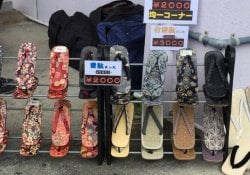Ijime, (いじめ / 苛め), this is the name given to Japanese Bullying. Everyone knows what bullying is, right? Bullying is the act of assaulting a person physically, morally and psychologically. Sometimes, leaving irreversible consequences.
For us Brazilians, bullying is better known and confused with the act of “zooming”. But in the end, it's all the same. Unfortunately, both Brazil and Japan suffer from high levels of bullying.
Índice de Conteúdo
Derukui wa Utareku
Derukui wa Utareku (出る杭は打たれる) is a very popular Japanese expression, which basically means: “The nail that sticks out gets hammered”.
This represents very well the worst of Japan. And don't think that Ijime only takes place in schools, it also takes place in companies and many other places. As we already know, Bully, he always prefers to attack the most fragile and “innocent” victim, that is, those people who don't know how to defend themselves.
In Japan, people are kind of forced to be “robotic”, that is, to be like everyone else and follow the same customs and rules. These people who act differently are the main targets, not only in Japan, but everywhere.
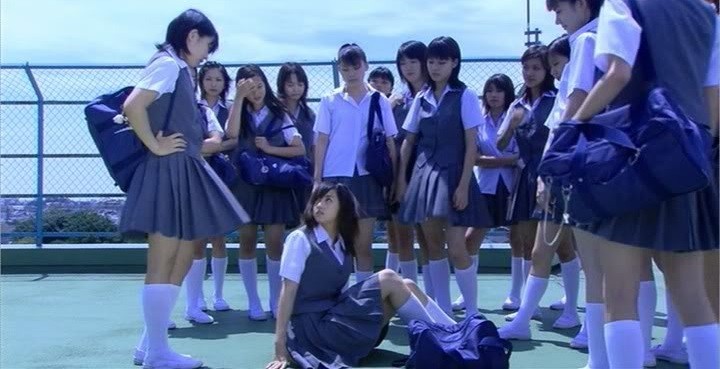
The biggest cases of Ijime occur in Japanese schools. Where even some teachers suffer from it. The biggest targets? Foreigners and indifferent.
Foreigners and the lack of communication
Our friend Luiz Rafael always says the following, “If you live in Japan, it is more than an obligation that you learn Japanese!”
This is really true, it's a problem to have foreigners in any country who don't speak the native language. Of course, if you're a tourist, this won't be a problem.
The lack of communication greatly affects the coexistence between the people around you. We always hear that Japanese people don't like foreigners and the like, but this is half true. They are very receptive, but once you settle in, they tend to change, of course not everyone changes. Some would say that 70% of the population doesn't care about "difference" stuff.
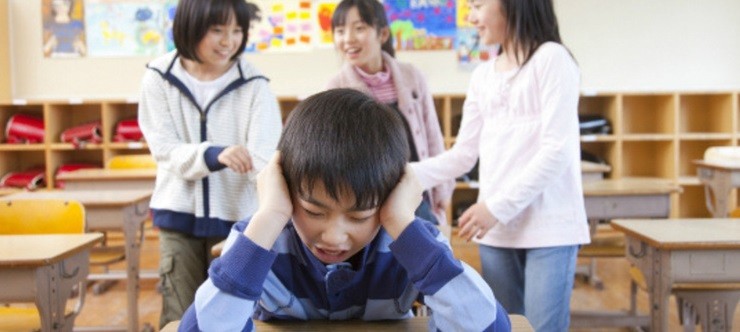
Ijime's biggest case related to foreigners is in schools. We can see this when many Brazilian parents prefer to place their children in a private school for foreigners, in this case, Brazilians. We heard many reports from Brazilians about Ijime, this is really sad and regrettable.
Some Brazilian parents even received compensation for their children for such acts committed by other students.
Some cases are “heinous”, from what I saw scouring the internet, many schools omitem such acts and overlook. I saw something that shocked me, a case where a teacher suffers from Ijime, and in one of the acts, she was forced to eat chalk by a group of students.
What does Ijime do to the victim?
There was a time in Brazil when Bullying was in fever, where several awareness campaigns were being carried out, with that, many cases were stopped. Bullying will not cease to exist under any circumstances, but it can be reduced, however, another thing that doesn't end is the pain that remains in the victim.
Some people develop mental, physiological, and other problems in a variety of ways. The physical pain will pass one day, but the psychological pain will continue. Imagine the teacher who suffered ijime, she must have developed psychological problems, requiring treatments. It's not about money, it's about metal pain.
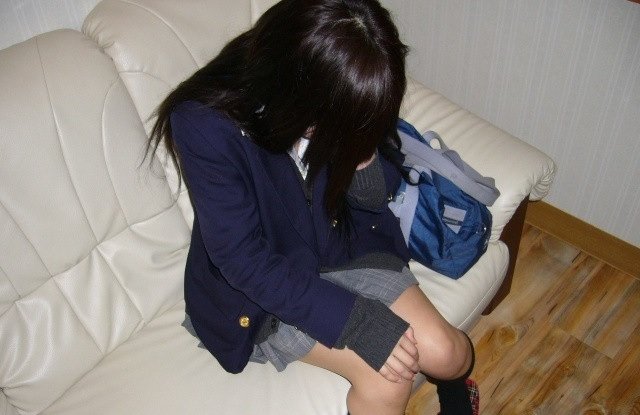
There are effective treatments where the victim will recover from the trauma, but even then, not all remorse goes away. Depending on the type of ijime suffered, the person will be afraid to attend certain places, such as schools and work environments.
Behavior change. The most common case, where the victim distances himself from everyone else, prefers to be alone, isolates himself, does not talk about everyday life, spends the day locked in their rooms, crying, becoming a hikikomori or anything like that. This is something no one wants to see, right?
The article is still halfway through, but we recommend also reading:
Suicides on account of ijime
For about 10 years now, Japan has been losing its position as the country with the greatest suicide rate. But even so, ijime is still one of the biggest incentives to take your own life.
In Japan, small things are seen as reasons for suicide.
Example: A person works for years in a company and was fired, this kind of case is quite common, but some take it to the extreme, to the point of suicide.
Example: The husband discovers a betrayal. This one is a little less common. Japan is not like in Brazil where you break up with someone and are already with someone else, people there are more reserved, so the husband could feel that he could not continue living, besides the shame.
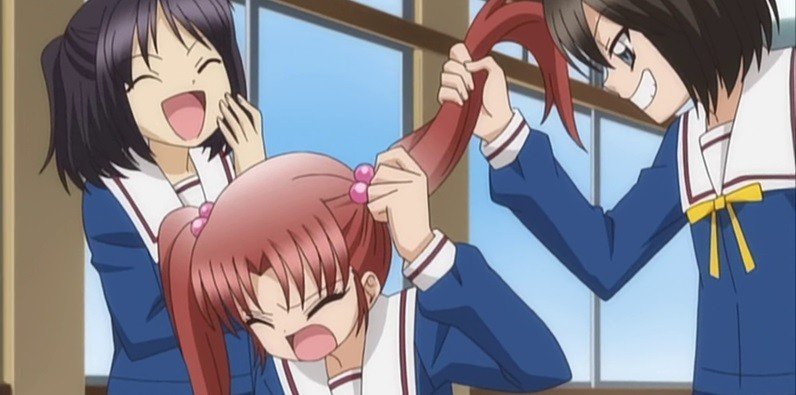
And the ijime case is also one of the leading causes of youth suicides. Some students stop attending school and some go to the extreme, straight to suicide.
In 2012 alone, during April and September, about 144,000 cases were recorded, of which about 280 cases were considered to be very serious. The most serious cases range from aggression to cases where the victim is humiliated.
For some they are really a drama, but in fact it is. Some think, "It's better to take my life than go on with it." Wrong. Many Japanese parents don't even know about their children's situation, because if they did, I'm sure they would do something. No parent wants to see their child suffer.
The way is always to try to talk to your child, whether in Brazil, Japan or anywhere. This is because, it is better to resolve it as soon as possible than to be caught with such sad news.
Other information about jime
The ijime is already rooted in Japanese culture, since thousands of years. Many factors such as class, gender, appearance and performance serve as reasons for people to be bullied. Even some teachers who should collaborate against this act end up encouraging or starting it.
The main reason for so many cases of ijime in Japan is shyness and shame, people who suffer this case are unable to seek help out of shame. And there is a lack of support from teachers to detect and solve these cases. Often boys suffer ijime even from girls. I think parents should also help their children to take a little more action!
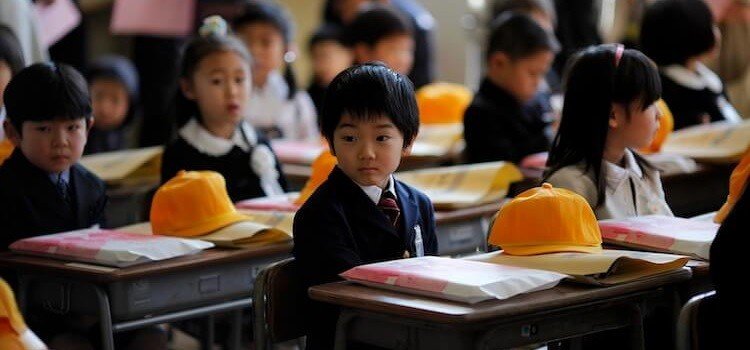
Most cases happen according to age. The number is high in primary and decreases with adulthood. In addition to physical and verbal aggression, it is common for aggressors to extort money from victims, steal their belongings, humiliate them and even attack them using social media and technology.
Emperor Akihito's granddaughter also suffered ijime. Princess Aiko, only 8 years old and daughter of Prince Naruhito and Princess Masado, had stopped attending classes for a period of time. She said it was because she suffered ijime for her peers.
Ijime can be fought! Just run after your rights and help! If you or your child suffers from this and you still haven't taken action, it's past time to start. If the case is serious, don't be afraid to involve authorities or even change schools, it's best to eliminate these problems as soon as possible.
Harassment and Abuse of Power - Power Hara
power harassment or power harasum [パワーハラスメント] is when people take advantage of the workplace or school, common among those with strong social status like Senpai and company bosses.
This harassment is characterized and can lead to severe punishments of the law when it exceeds the following limits:
- Ataque / lesão (ataque físico);
- Intimidação, difamação, insulto, línguagem abusiva terrível (ataque mental);
- Isolamento / remoção / ignorância (separação das relações humanas);
- Impose things that are clearly unnecessary or unrealizable in business, interfere with work (excessive demand);
- Exclusão, não dê um trabalho razoável;
- Work that is beyond your ability or experience without reasonable rationality (below the requirement);
- Entrada excessiva em assuntos privados (violação de um indivíduo);
- Repreensão pública (repreensão em muitas frentes), negação da personalidade;
While power harassment is not unique to Japan, it has received significant attention in Japan as a political and legal issue since the 1990s. A 2016 government survey found that more than 30% workers have experienced power harassment in the past three years.
the Japanese term Power Hara was coined by Yasuko Okada of Tokoha Gakuen Junior College in 2002. Japanese courts have applied the general principle of compensation in Article 709 of the Civil Code of Japan to compensate victims of workplace bullying and power harassment.
In 2019, the National Diet adopted the Power Harassment Prevention Act, which amends the Comprehensive Work Policy Promotion Act to require employers to address power harassment.
The 2019 law creates a new Chapter 8 that addresses “observations and behaviors of people who take advantage of their superior positions in the work environment that go beyond what is necessary and appropriate for the conduct of business, thus harming the work environment of employees”.
The law went into effect for large employers on June 1, 2020. It prohibits retaliatory dismissal of employees who complain of harassment and requires employers to put systems in place to report and deal with abuse of power.
Academic harassment - AkaHara
Academic harassment as well as power hara is abbreviated as Akahara [アカハラ]. Refers to College and staff who abuse their educational and research powers in academic institutions such as universities to unfairly achieve other members.
Refers to a violation of personal rights that impairs study, education, research or work performance, or inflicts psychological or physical harm. It could be when a teacher forces students to do tasks they should be doing, or steals student discoveries to take credit.
Defined by the NPO as “irrational conduct under a dominant power relationship related to research and education”. The following are examples of academic harassment:
- Obstrução às atividades de aprendizagem e pesquisa;
- Directly or indirectly obstruct legitimate activities in teaching and research institutions;
- Não fornece um tema de pesquisa [fonte obrigatória];
- Não usa literatura/livros ou dispositivos;
- Descarta o equipamento experimental e reagentes sem permissão;
- It interferes with the purchase of goods needed for research and business travel;
- Não dê uma mesa ou sala para seus subordinados;
- Proibir o acesso ao laboratório sem motivo válido;
- Do not allow participation in academic conferences without valid reason;
- Cria obstáculos ao emprego e à educação superior;
- Extortion of unwanted transfers and others;
- Does not allow changing teachers without consequences;
- Import learning plans;
- Don't write a letter of recommendation necessary for a job;
- Prohibit job search;
- Put pressure on a company to cancel the offer;
- Transfer strength to other research and education organizations;
- Prevent others from having a romantic relationship.
- Breaking international rules for authorship of research articles, stealing ideas;
- The teacher arbitrarily decides the order of the authors.
- Force inclusion of coauthors with little or no involvement in the study;
- Write a dissertation secretly using the students' ideas.
- Throwing away student work without even reading (even reading);
- Reprimand out loud for small mistakes;






